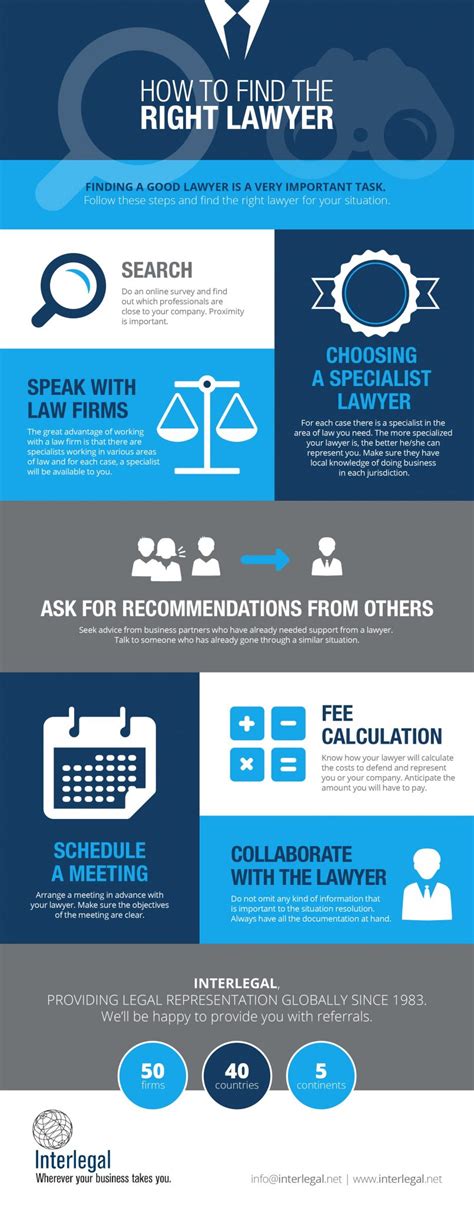How to Find the Right Lawyer for Your Needs
Finding the right lawyer can feel overwhelming. With so many legal professionals specializing in various areas, knowing where to begin your search is crucial. This guide will walk you through the process, helping you find a lawyer who best fits your specific needs and budget.
Understanding Your Legal Needs
Before you start searching, take the time to clearly define your legal issue. What kind of legal help do you need? Are you facing a criminal charge, involved in a civil dispute, dealing with a family matter, or needing help with a business contract? The more specific you are about your needs, the easier it will be to find a suitable lawyer.
Key Questions to Ask Yourself:
- What type of law is involved? (e.g., family law, criminal law, personal injury, real estate)
- What is the specific legal problem you are facing? Be as detailed as possible.
- What is your desired outcome? What are you hoping to achieve through legal representation?
- What is your budget? Legal fees can vary widely.
Methods for Finding a Lawyer
There are several effective ways to find a qualified lawyer:
1. Online Legal Directories
Online legal directories, such as Avvo, FindLaw, and Martindale-Hubbell, offer extensive listings of lawyers. These directories often allow you to filter by location, legal specialty, and client reviews. Remember to check multiple directories for a broader perspective.
2. Referrals from Friends, Family, and Colleagues
Word-of-mouth referrals are invaluable. Ask your trusted network if they can recommend a lawyer they've had positive experiences with. Personal recommendations can offer insights into a lawyer's professionalism, communication style, and overall effectiveness.
3. Bar Associations
Your state's bar association maintains a directory of licensed attorneys. This is a reliable resource to verify a lawyer's credentials and disciplinary history. Many bar associations also offer lawyer referral services.
4. Local Legal Aid Societies
If you have limited financial resources, consider contacting your local legal aid society. These organizations provide legal assistance to low-income individuals.
Evaluating Potential Lawyers
Once you've compiled a list of potential lawyers, take the time to thoroughly evaluate each candidate:
1. Check Credentials and Experience
Verify the lawyer's license, years of experience, and specialization. Look for evidence of their expertise in your specific legal area.
2. Review Online Reviews and Testimonials
While online reviews shouldn't be the sole determining factor, they can provide valuable insights into a lawyer's client communication, responsiveness, and overall effectiveness.
3. Schedule Consultations
Most lawyers offer initial consultations, often at a reduced rate or for free. This is your opportunity to discuss your case, ask questions, and assess whether you feel comfortable working with the lawyer.
4. Consider Communication Style and Personality
A good lawyer-client relationship is built on trust and clear communication. Choose a lawyer whose communication style and personality you find compatible and comfortable.
Making Your Decision
Choosing a lawyer is a significant decision. Don't rush the process. Take your time to evaluate your options and select the lawyer who you believe will best represent your interests and achieve your desired outcome. Remember, a strong lawyer-client relationship is key to a successful legal outcome.
